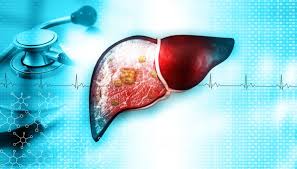The liver is one of the most important organs in the body, and when it is affected for a long period, overall health suffers. Chronic liver disease treatment is designed to slow down damage, control symptoms, and prevent complications that could become life-threatening. At SN Gastro, patients receive care that focuses on accurate diagnosis, advanced treatment methods, and lifestyle guidance for better long-term outcomes.
Causes of Chronic Liver Disease
Chronic liver disease often develops gradually and may remain unnoticed until symptoms appear. The most common causes include:
- Long-term viral infections such as hepatitis B and C
- Alcohol misuse over many years
- Obesity and fatty liver disease
- Autoimmune conditions affecting the liver
- Genetic or inherited disorders
Identifying the root cause early allows doctors to create an effective treatment plan tailored to each patient’s needs.
Approaches to Treatment
Medical Treatments
Doctors often begin treatment with medicines designed for the underlying condition. Antivirals are used for viral hepatitis, immunosuppressants for autoimmune-related disease, and metabolic therapies for fatty liver disease caused by obesity or diabetes.
Lifestyle Adjustments
Alongside medication, lifestyle changes play a major role in recovery. These include:
- Following a balanced diet that limits salt, sugar, and fatty foods
- Losing extra weight to reduce liver inflammation
- Staying physically active with regular exercise
- Completely avoiding alcohol to protect liver function
When patients make these adjustments, they not only improve liver health but also enhance their overall quality of life.
Managing Advanced Conditions
If the disease progresses to cirrhosis, patients may face serious complications such as fluid buildup, bleeding, or confusion. To manage these, doctors may prescribe diuretics, use lactulose for brain-related symptoms, and perform endoscopic procedures to control bleeding. Continuous monitoring and timely medical support are critical at this stage.
Advanced and Emerging Therapies
For those with end-stage disease, liver transplantation remains the best treatment option. However, exciting new therapies are also becoming available. Drugs like semaglutide and resmetirom are showing success in reducing liver fat and fibrosis. In addition, research into stem-cell and regenerative treatments is opening new possibilities for restoring liver function in the future.
Conclusion
Effective chronic liver disease treatment requires a combination of medical therapy, lifestyle support, and ongoing monitoring. With proper care, patients can slow disease progression, reduce complications, and live healthier lives. At SN Gastro, treatment plans are designed to provide complete support and hope for a stronger, healthier future.





Comments